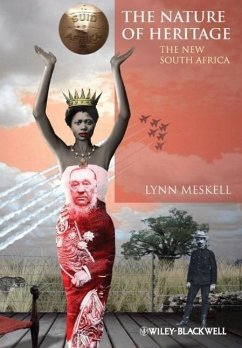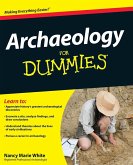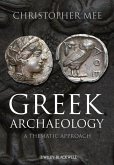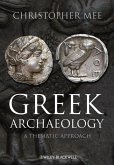This text is a groundbreaking work by archaeologist Lynn Meskell that examines the conflicts inherent in natural vs. cultural heritage. The author brings archaeological and ethnographic evidence to bear on a holistic understanding of one nation's self-identification by developing its protected areas and cultural heritage sites. The case study of Kruger National Park vividly demonstrates this process through both cultural and natural resource development. Meskell argues that cultural heritage has emerged as secondary to the conservation of nature, but that the idea of heritage as therapy provides a valuable ongoing strategy for socioeconomic empowerment and development.
The Nature of Heritage: The New South Africa is unique in revealing the conflicts inherent in preserving both natural and cultural heritage, by examining the archaeological, ethnographic and economic evidence of a nation s attempts to master its past and its future.
Provides a classic example of how nations attempt to overcome a negative heritage through past mastering of their histories
Evaluates the continuing dominance of nature and conservation over concerns for cultural heritage
Employs ethnographic and archaeological methodologies to reveal how the past is processed into a new national heritage
Identifies heritage as therapy, exemplified in the strategy for repairing legacies of racial and ethnic difference in post-apartheid South Africa
Highlights the role of archaeological heritage sites, national parks and protected areas in economic development and social empowerment
Explores how nature trumps culture and the global implications of the new configurations of heritage
The Nature of Heritage: The New South Africa is unique in revealing the conflicts inherent in preserving both natural and cultural heritage, by examining the archaeological, ethnographic and economic evidence of a nation s attempts to master its past and its future.
Provides a classic example of how nations attempt to overcome a negative heritage through past mastering of their histories
Evaluates the continuing dominance of nature and conservation over concerns for cultural heritage
Employs ethnographic and archaeological methodologies to reveal how the past is processed into a new national heritage
Identifies heritage as therapy, exemplified in the strategy for repairing legacies of racial and ethnic difference in post-apartheid South Africa
Highlights the role of archaeological heritage sites, national parks and protected areas in economic development and social empowerment
Explores how nature trumps culture and the global implications of the new configurations of heritage
"With a rhetoric of diversity, sustainability, and conservation, neoliberal forces typecast entire societies as both money-spinning tourist fodder and evil destroyers of pristine nature. Meskell incisively exposes the resulting structural violence of conservation in South Africa, showing how managerial simplification of the country's painful historical experience and complex archaeological record perpetuates past oppressions and exclusions. The Nature of Heritage gives timely shape and heft to concern for the future of the past - and the future of humanity." -- Michael Herzfeld, Harvard University
"In one sense this is a book about the loss of innocence - of how the dream of cultural heritage in a new South Africa has been swamped by narrower interests and the tourism market. But it also a reassertion of the value and significance of archaeological ethnography, of showing how 'past-mastering' is invariably the outcome of compromises, and imbued with politics." -- Martin Hall, University of Salford
"In one sense this is a book about the loss of innocence - of how the dream of cultural heritage in a new South Africa has been swamped by narrower interests and the tourism market. But it also a reassertion of the value and significance of archaeological ethnography, of showing how 'past-mastering' is invariably the outcome of compromises, and imbued with politics." -- Martin Hall, University of Salford
"Lynn Meskell's book is carefully researched and engagingly written, and is essential reading for anyone interested in archaeology and heritage in South Africa." (South African Archaeological Bulletin, 1 October 2013)








